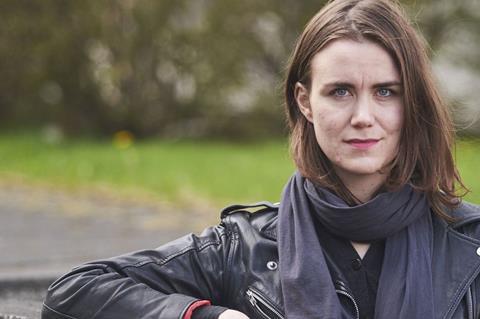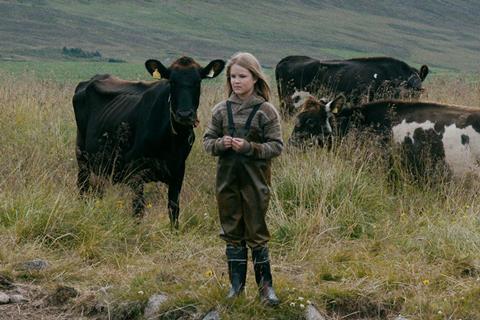Icelandic writer/director Asa Hjorleifsdottir, who earned an MFA in film from Columbia University, makes her feature directorial debut with The Swan, after previously making the award-winning short films Love Story and You And Me.

The story, adapted from an influential 1991 Icelandic novel by Guðbergur Bergsson, is about a nine-year-old girl sent to spend the summer with distant relatives in the countryside. There, she befriends a mysterious farmhand even though she doesn’t fully understand the adult world.
The film premiered in Toronto International Film Festival’s Discovery strand. Birgitta Björnsdóttir and Hlín Jóhannesdóttir produce for Iceland’s Vintage Pictures; m-appeal handles international sales.
You first thought of making The Swan while taking an adaptation course at Columbia?
The Swan instantly came to mind because I had read it some years before and had completely fallen in love with it. This novel was one of the things that had made me want to go into film.

Was it difficult to adapt?
Yes, because it’s all about the world of this girl’s mind, her imaginings and thoughts. I didn’t want to make a film that was just 90 minutes of voiceover with images, so it was quite a challenge. A lot of people said to me, “How the hell is this going to be a movie?” But I felt strongly that there were things that could be truly cinematic.
How does this feature represent what you are interested in as a filmmaker?
In The Swan there are all these parallels between the surrounding nature, and the nature of the people. How our emotional life is a wilderness. I’m fascinated by this theme – this raw emotion and how complex it can be. I want to explore how the camera can be a witness to these emotions and how, like the child in this movie, the camera doesn’t judge. I also thought a lot about this state of emotional flux we exist in: the fluidity of our emotional lives and how that can be captured on camera.
How did you find Gríma Valsdóttir, who was 11 when you shot the film?
In early 2014, I auditioned close to 100 girls for my short film You And Me, that was simultaneously a secret audition for The Swan. Gríma, who was then only nine, got the part in the short, and after working with her then I knew she was a genius and a lovely human being and so intelligent. I knew we could work together well, and that she could carry this feature.
What’s special about her?
She has secrets in her eyes. She has this emotional depth and she has so many faces. I spent a long time editing this film, but I never got tired of looking at her. She’s deeply perceptive and as an actress, she never does anything she doesn’t believe. Working together, we developed a shorthand and sometimes it would just be simple things I would say to her, just describe something step by step. She’s so smart so there was no need for me to over-explain anything to her.
How did you want to approach the nine-year-old character of your film?
There’s this mysterious point in age where you can see into the future and into your past. That happened to me when I was nine. You’re kind of nostalgic because you know your childhood is ending, but at the same time it’s like you’re trying on adulthood and seeing how it fits. And I think that in this window of time you can perceive the crazy world of adults so strongly, even if you don’t fully understand it.
The nine-year old protagonist of the film is like the camera in a way, perceiving things without judging them, feeling people’s pain and sorrow and loneliness and being able to comfort these adults without necessarily understanding them. And the adults start to need her in a way, because they too are struggling with their own loss of innocence.
Icelandic directors say the amazing landscapes in the country can be a blessing and a curse. How did you use landscape in The Swan?
I tried to not use the landscape gratuitously but because of this “human nature in nature” thread, the landscape certainly is a character in the film. The location was also spectacular, the farm sitting in these beautiful mountains, so you sort of can’t help taking it in.
Why did you want your first feature to be Icelandic?
Sometimes I think you don’t have a choice. I’ve lived 12 years of my life abroad, but even so most of the stories I write are connected to Iceland. I know many writers/filmmakers experience this – that you can’t escape your origin in that way. But on a more specific note, I just felt so strongly that the The Swan was the film I wanted to make first. I connected so deeply to the story and to its narrator, the girl. In some mysterious way, this is the film I’ve wanted to make since I was nine.

























No comments yet